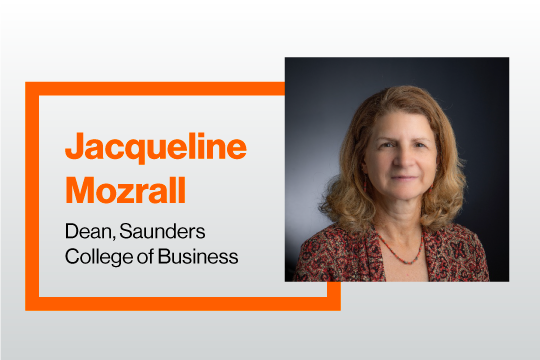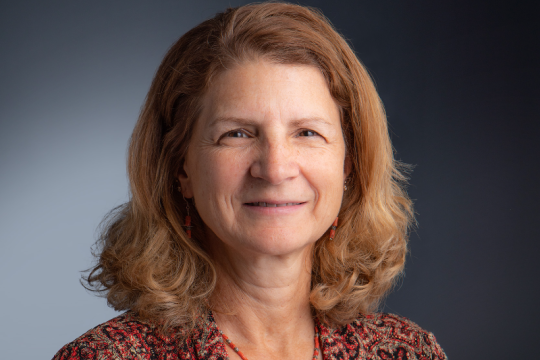Dean Mozrall for RBJ: Using Technology to Enhance Senior Living
Dean Mozrall's Advancing Business column, as seen in Rochester Business Journal on May 4, 2021
Using technology to enhance senior living
Our shared pandemic has directed a spotlight on the quality of life for seniors who are so near and dear to us in our communities. Recently, we have seen several articles discussing senior living, as the past year has helped demonstrate the generational gap in the adoption of technologies. Not long ago, many of us may recall almost comical interactions with parents and grandparents struggling to work a DVR or television remote. Today, technologies have exploded well beyond the DVR, past the advent of the Internet, mobile phones and smart phones. Now, apps and technologies surround us.
When I first met Dr. Sara Czaja, a behavioral scientist and former faculty member at University of Buffalo many years ago, I was fascinated by her research regarding seniors and technology. She has since authored groundbreaking work as the founder and director of the Center for Research and Education on Aging and Technology Enhancement (CREATE) lab at the University of Miami. A 2006 CREATE study established foundational research showing that the adoption of technology in aging populations is less dependent upon physical and cognitive capabilities, and more often centered around attitudes, lack of self-confidence and anxieties.
More recently, a 2014 Pew Research Center study explored the generational gap between older adults and technology use. In terms of technological research, it is already dated — measuring gaps in cell phone usage, Internet and broadband — but it highlights technology gaps for populations over 65 and how these gaps affect those with less wealth and less education.
Although now, in 2021, our elderly have lived with technology longer and things continue to change rapidly. It can be difficult to keep up with the acceleration and pervasiveness of technology in our environments. By 2040, those older than 65 will make up 21 percent of the U.S. population, or roughly 80 million people. The current pandemic has pointed to the vulnerability of our seniors. Yet the research in this area is showing progress and inspiration.
As Dr. Czaja’s research suggests, “The older population does not fit the model that assumes they can’t text, email, figure out Facebook or find information online.” Or as John Ward, RIT Saunders College of Business professor and board member of Seniors First at Kirkhaven, shares, “They are capable, they are willing, they are motivated, but they just need some help.”
Local initiatives are showing just that. St. John’s Home has introduced Soundmind, a new technology similar to an Echo Show, which residents have successfully adopted. Jewish Senior Life has developed the TekHub program in partnership with RIT, proving once again that seniors lack confidence when using technology, not physical or cognitive ability.
Nate Sweeney, St. John’s vice president of Skilled Services, introduced Soundmind in 2020. Residents at St. John’s are successfully adopting the tool to video chat with their loved ones, listen to music, stay up–to–date on activities, receive news briefs and view photos from family. Jennifer Lesinski, St. John’s vice president of marketing and project manager of its new Online Dementia Resource Center shares, “It has been a dream of mine to develop a specialized technology-focused piece of the project, which showcases new developments aimed at supporting dementia caregivers in both home and facility environments.” She hopes to do more, and points to the Thrive Center in Louisville, Ky., as an aspirant model. The center is devoted to further promoting healthy aging with technological innovations.
Although there has been significant research in these areas, much of it has been disparate. Studies have explored specific topics in areas such as engineering, genealogy, computer interfaces and information systems. There is a lot of promise, however, for a more holistic, collaborative approach that supports integrative studies across multiple disciplines.
In search of answers, Forman Collaborative Research Professor in RIT’s Saunders College Dr. Victor Perotti has partnered with Jewish Senior Life with the goal of employing technology to improve the lives of older adults. He and his students helped develop TekHub at Jewish Senior Life’s independent living community. Much like a dedicated on premise Geek Squad, TekHub brings the 2016 CREATE research to life.
Backed by faculty, technology resources and expertise in data design, RIT students work directly with seniors one-on-one to address technology challenges. By cataloging these interactions, TekHub systematically evaluates issues and solutions. Residents help the TekHub team create systems and a knowledge base of self-help tools. Seniors are walking away with a newfound confidence to utilize technologies on their own.
The specialization of senior life staff members and their care–giving duties often do not leave them with enough time or expertise to assist residents with technical issues. Similarly, although senior communities often have technical support staff members, their work is mostly committed to equipment and infrastructure maintenance and development. This has left an unfilled need for more personalized technology–related services.
As a result of these programs, Jewish Senior Life residents are finding that they can now help each other. By measuring levels of experience, attitudes and cognitive and sensory capabilities, TekHub staff are better able to predict where to focus their attention, and how to increase the success rate of residents.
Senior communities like Jewish Senior Life will get even more out of the TekHub platform as it gains more experience serving these communities. Each one-on-one interaction is an opportunity to collect more data and use it to help seniors more effectively in the future. Plans to expand this research will integrate collaboration between more technologies and across disciplines. Collaboration between hardware, applications, robotics, health sciences, information systems and other technologies all provide promise for the elderly.
Discussions are developing with more regional community partners. Conversations have begun with the Alliance for Senior Care, which includes Episcopal SeniorLife Communities, Friendly Senior Living, Jewish Senior Life, St. Ann’s Community and St. John’s. The Alliance represents more than 4,400 employees and over 2,000 skilled nursing and assisted–living beds. Additional talks have begun with Rochester RHIO, Hurlbut Care Communities and Hamister Group.
Already, our seniors are enjoying the benefits. Whether learning how to use a password manager or how to connect with loved ones through FaceTime or Zoom, technology is helping them overcome their day-to-day challenges, as well as those caused by the pandemic. As journalist Deckert shares in her coverage of senior living in a post-COVID world, despite a difficult year, many innovations adopted because of the pandemic to improve the quality of life for seniors are here to stay.
Jacqueline Mozrall is dean of Saunders College of Business at Rochester Institute of Technology.













